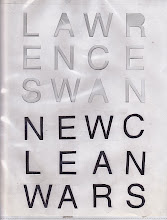Jesus against the Pharisees, continued
"Truly I tell you, this generation will not pass away until all these things have taken place."
If Jesus was referring to the his disciples' generation in this prophecy, is it after the end of the world? Are we now living in a different world? This is a question I'm asking as I look at the last chapters of Matthew's gospel.
Let our eyes be opened.
Since last week I have come upon some other interpretations of last week's material relating to taxes: yeshuajesus. Jesus' response to the question about the tax may have been a trap to expose the hypocrisy of the inquisitors. Since they were in the temple precincts, the presence of a coin bearing the god/emperor's image was an abomination. Waddaya doing with this pagan coin, hypocrite? Jesus' earlier questions to Peter about whether a king would tax his own sons, imply that he doesn't owe the tax, being the son of God, or that his followers, also being children of god - and his brothers, sisters, mothers and fathers, as he had declared - also did not owe the tax, at least not in the kingdom of heaven where they are all family.
The nature of this kingdom is shown in his statements on the greatest commandments. I have read that his position here has precedents in rabbinical thought - Hillel, for example - but you wouldn't know that from this gospel. Compare Matthew's version Matthew's version of the question about the greatest commandment and note the difference from Mark's. Matthew said "the lawyer" asked the question to tempt him and left out this exchange:
"Then the scribe said to him, “You are right, Teacher; you have truly said that ‘he is one, and besides him there is no other’; 33 and ‘to love him with all the heart, and with all the understanding, and with all the strength,’ and ‘to love one’s neighbor as oneself,’—this is much more important than all whole burnt offerings and sacrifices.” 34 When Jesus saw that he answered wisely, he said to him, “You are not far from the kingdom of God.”
The wise scribe's commentary sums up the teaching of the biblical prophets. For me the gospel is inspiring when someone expresses this prophetic message. It is remarkable that Matthew cuts it out so it won't dilute Jesus denunciation of the Pharisees which he pasted in right after Jesus' puzzler about Psalm 110.
Read the Wikipedia article on the Siege of Jerusalem and also read Psalm 110, a psalm assuring victory to a priest king. This "Psalm of David" was believed to be about the Messiah and believed to have been written by David the king. So if the messiah is a son of David why would David call him Lord? I think Jesus' argument is that the messiah is not a nationalist hero, but a universal messiah for all nations, although the last few verses of Psalm 110 are disturbing:
"The Lord is at your right hand;
he will shatter kings on the day of his wrath.
6 He will execute judgment among the nations,
filling them with corpses;
he will shatter heads
over the wide earth."
I am sure that this kind of conquering warrior king is what many of the nationalists had in mind, and its what many have in mind today, but the Second Temple wasn't destroyed by the messiah, and it wasn't destroyed by the Pharisees. It was destroyed by Titus' army, probably by mistake. According to Josephus, I think, Titus wanted to turn it into a temple to Jupiter and thought that he was God's instrument in the war with the Jews, but God used pagan conquerors to strike Israel in the past and I'm sure popular as well as rabbinical debate after the temple's destruction was centered on What is God telling us, or Why has God abandoned us, or Who is to blame? The scenes in the temple are largely anti-rabbinical propaganda. So much of this gospel is uninspiring, and even depressing, because of it anti- Pharisee propaganda, but it reflects the situation of Matthew's community soon after the destruction of the temple, and decades after Jesus' crucifiction, when his followers were accused of heresy and spreading propaganda about their dead messiah. I wonder if the real point of Matthew's attacks on the Pharisees is to discredit their claim that Jesus' disciples had stolen Jesus' body and lied about the resurrection. The Jesus movement was based on a small group of followers who claimed to have witnessed the resurrected Jesus and to have been called by him to spread his message until the messiah returns and the messianic age is realized, utopia now. The scribe in Mark's gospel wasn't far from the kingdom of God, because Jesus' teaching of that kingdom comes out of the scriptures held sacred by the rabbinical tradition. For two thousand years Christians have spent too much time preaching that Jewish scriptures are "fulfilled" in the canonical Christian texts, when they should have been learning what Jesus was talking about by studying the texts he studied.
As I said before, many of us don't see the historical Pharisees when we read this, we see the hypocrite celebrities of our own time, who con money out of the faithful, and demand conformity to bizarre beliefs.
Matthew created a rhetorical masterpiece when he edited this. Jesus' "O, Jerusalem" speech concludes with an echo of his triumphal entry into Jerusalem, when the crowd thought their conquering messiah had arrived.



0 Comments:
Post a Comment
<< Home